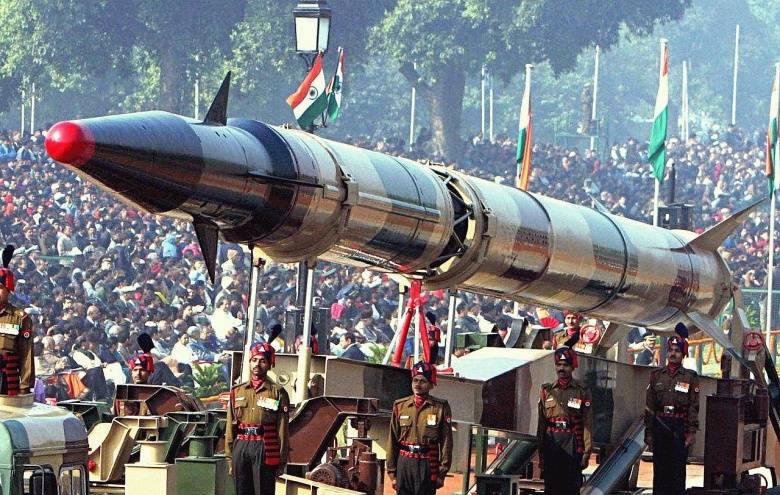The 27th Plenary Meeting of the Nuclear Suppliers Group (NSG), an elite nuclear cartel to control nuclear commerce, which was held in Switzerland on June 22-23, ended inconclusively on the issue of non-NPT state’s membership. India was struggling to whittle away the resistance for paving way into the group. However, the country’s print media headlines concluded the entry status as ‘stalled and awaited’.
The outcome of this plenary session on the enlargement of cartel’s memberships does not come as a surprise because no major breakthrough for India’s accession to NSG was expected for foreseeable future, viewing no change in China’s position and a blatant slant among the members of cartel over the criteria for accepting new or non-NPT countries into its fold.
The stringent division was observed on Grossi Proposal as well, which was presented last year and showed clear inclination in India’s favour over Pakistan. Reportedly, more than 20 states are defying US pressure currently and insisting to adopt an objective and universal criteria for inclusion of non-NPT states in the cartel.
The view from Pakistan maintains that persuasive diplomatic outreach by Islamabad spread the realisation on international level about the possible repercussions of further exceptions for India. Conversely, the resilience from Indian side for NSG candidature was also manifested. However, notwithstanding US efforts for India’s exceptional and unconditional entry, the stalemate still persist on offering an exclusive treatment to India.
So what was discussed in the recent plenary meeting and how it was significant? Other than highlighting the central role of NSG and its contribution to the international nuclear non-proliferation architecture with NPT at its centre, the member states of group reassessed stock of developments since last plenary meeting. Whilst NSG discussed the ‘technical, legal and political aspects of the participation of the non-NPT states of the NSG,’ eight significant issues were focused in the discussion.
At first, diverse views were exchanged on the technical issues imperative for the implementation of the control lists and various proposals were considered to update the NSG control list. Next, the discussion took place to upgrade the NSG guidelines in order to keep pace with evolving global security landscape. Moreover, the policies regarding transparency were debated and information was exchanged for best practices on licensing and enforcement. In addition, the participating governments welcomed the growing number of states that have harmonised their national export control systems with the NSG guidelines and control lists.
Lastly and more significantly, NSG relationship with India was discussed and all aspects of the implementation of the 2008 statement on Civil Nuclear Cooperation with India were considered. India was granted special waiver from its rules governing civilian nuclear trade that paved the way for India-US nuclear deal. Critics argue the problem with this exceptionalism is that a lot of fissile material that is being imported extensively for India’s civilian nuclear programme is going into its civilian unsafeguarded stream and could possibly be using for its weapon programme.
Consequently there exists a big hole in India’s separation plan that keeps one guessing. This is a critical issue that has also been highlighted in recent literature and a number of countries are also aware of this concern. It is also clear from the recent Belfer Center report by Mansoor Ahmed, titled “India’s Nuclear Exceptionalism”, that the ability for India to import its fissile material for civilian purpose has enabled it to use its indigenous stock of fissile material exclusively for weapon purpose. So India’s ability to increase the inventory of nuclear weapons has gone up tremendously. Akin apprehensions were raised in King’s College report, titled “India’s Strategic Nuclear and Missile Programmes”. This depicts that negative narrative about Pakistan as the fastest growing nuclear programme is a deception and debatable.
The fact of the matter is that the number of nuclear facilities and fissile material stocks in Pakistan are much lesser as compared to India’s especially after it was given the waiver in 2008. Hence it is impossible for Pakistan to have a nuclear programme that is growing faster than that of India. Consequently, the debate about India’s growing nuclear programme and exceptional treatment rekindled lately and probably the issue will be discussed again in next meeting as NSG members decided to meet again to discuss the issue of non-NPT state’s candidature in November.
This is yet to see that what consensus the participating governments will reach on admission of new states into its fold. However, Pakistan feels encouraged by the increasing number of states supporting neutral formula and realising Islamabad’s concerns about New Delhi’s exceptional treatment. It is hoped that NSG members would adopt an impartial criteria for all non-NPT countries in future. Otherwise another exemption for India would accelerate arms race in the South Asian region by infuriating Pakistan to expand its nuclear capabilities and will also question international efforts to curb proliferation. To conclude, criteria-based NSG membership is a mutually beneficial proposition because it will benefit the strategic restrain, the stability in South Asia, the non-proliferation regime, NPT and NSG.






